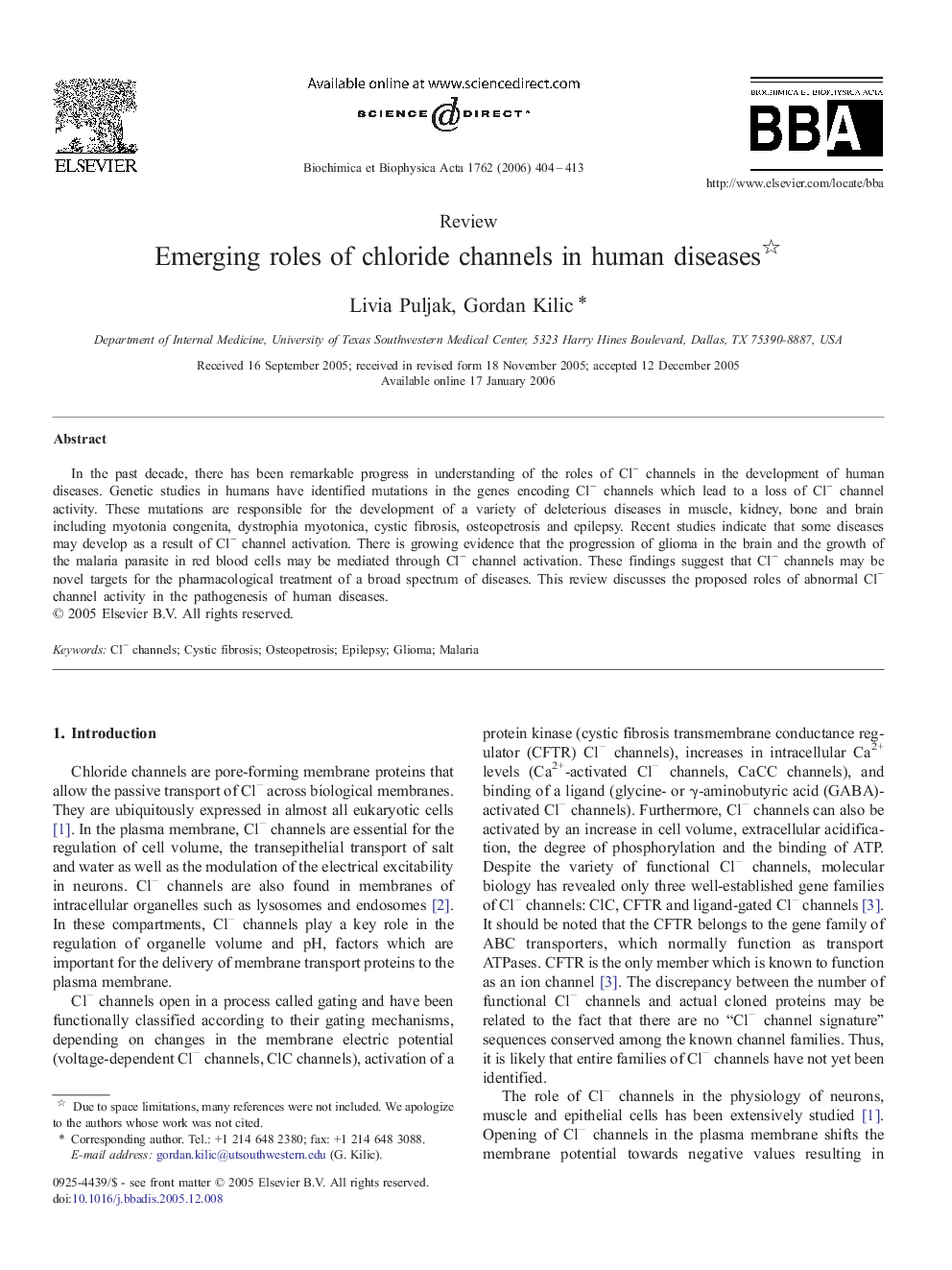| Article ID | Journal | Published Year | Pages | File Type |
|---|---|---|---|---|
| 1906029 | Biochimica et Biophysica Acta (BBA) - Molecular Basis of Disease | 2006 | 10 Pages |
In the past decade, there has been remarkable progress in understanding of the roles of Cl− channels in the development of human diseases. Genetic studies in humans have identified mutations in the genes encoding Cl− channels which lead to a loss of Cl− channel activity. These mutations are responsible for the development of a variety of deleterious diseases in muscle, kidney, bone and brain including myotonia congenita, dystrophia myotonica, cystic fibrosis, osteopetrosis and epilepsy. Recent studies indicate that some diseases may develop as a result of Cl− channel activation. There is growing evidence that the progression of glioma in the brain and the growth of the malaria parasite in red blood cells may be mediated through Cl− channel activation. These findings suggest that Cl− channels may be novel targets for the pharmacological treatment of a broad spectrum of diseases. This review discusses the proposed roles of abnormal Cl− channel activity in the pathogenesis of human diseases.
